|
Outre filmmaking which manages to blend and balance high-brow and low-brow sensibilities with impressive ease, Kentucker Audley & Albert Birney's Sylvio is an uncanny character study that is sagacious in its deconstruction of identity, providing a surprisingly potent portrait of the therapeutic-nature which creative expression can have on the individual's overall sense of self-worth. A story in which its main protagonist wears a gorilla mask for the entire running time, Sylvio is a singular study of everyday loneliness and alienation, one which uses this faceless & voiceless anthropomorphic character to elicit universal emotional truths about self. Sylvio is a character study through-and-through, one that follows this primate on a quest for self-relevance and eventually self-discovery, following his slow rise and quick fall on local Television after he becomes a minor celebrity due to his penchant for causing on-air mishaps. Given the low-brow set-up, Sylvio as a film slowly lulls the viewer into its off-beat world, with filmmakers Kentucker Audley and Albert Birney transversing the life and struggles of this primate, revealing high-brow assertions through the execution of its unsophisticated design. The aesthetic itself is simplistic by definition, yet the visual design is stylish and astutely composed, with the film bringing visual storytelling to an aesthetic typically attributed to low-brow slice-of-life cinema. Through Sylvio's personal journey, the filmmakers satirize the commercialization of artistic endeavors, showcasing the corrosive effects it can have on the individual nature of artistic expression. Sylvio as a character becomes a victim of success, a celebrity known and cherished for something that simply doesn't fulfill his internal creative drive. The fame and credibility that he inherits due to these on-air mishaps provide no internal satisfaction to him, inevitably leaving him just as isolated and empty as he felt from the onset of this story, stuck in the general malaise of his day-to-day, 9-to-5 job as a debt collector. Sylvio is a character who is unable to fulfill his own individual needs creatively, and through this zany story the filmmakers showcase how self-worth itself often comes from within, with Sylvio's alienation and everyday loneliness stemming from his own dissatisfaction with himself, not outside actors. In this sense, Sylvio is a testament to the individualist nature of art and creative expression, showcasing how this anthropomorphic character only finds self-satisfaction and worth through fulfilling his own personal drive to express himself. External analysis, good or bad, only comes secondary to internal satisfaction, with Sylvio as a film being assertive in showcasing importance of loving oneself first and foremost, recognizing that happiness and self-worth come from within. The ending itself is an optimistic testament to these ideals- with Sylvio garnering a standing ovation from the audience for the form of expression he values. Sylvio has achieved external praise but not at the expense of internal satisfaction, the perfect end-cap to a strange film that is an optimistic, one-of-a-kind story about the therapeutic, internal nature of personal expression and the connective nature it has externally.
0 Comments
An engrossing saga of maternal desperation which evolves as it progresses, Alain Gomis' Felicité is a challenging piece of cinema which is multi-faceted in its formalism. Beginning as a painstakingly-grounded personal journey built around realism, Alain Gomis' film slowly and methodically transforms into an impressionistic document of the Congo itself, a bold and brilliant choice which intrinsically links the struggles of our main protagonist Felicite and what she experiences with that of her home, the Congo. The narrative itself, centered around a young mother's frantic search through the streets of Kinshasha to raise money to help her injured son, is eschewed and subverted, with Alain Gomis contrasting the various lights and sounds of this city with the struggles of this individual, painting a vivid, sometimes horrific urban tapestry in which charity and selflessness are hard to find. A deeply personal struggle juxtaposed against a vivid and sensual portrait of the community in which she inhabits, Felicité is a film in which its thematic assertions aren't pronounced; yet through this story we are given a vivid portrait of a woman quietly fighting for a better life, a character who manages to remain hopeful and spiritually-centered despite many trials and tribulations, one who eventually finds some semblance of peace and happiness by the time the credits roll. While overlong, Gomis' film is impressive due to its tonal range; a film which doesn't simply dwell in miserbalism, offering up a sensual document of the Congo that manages to be dire yet hopeful, sensual, and alive. While the precise thematic assertions remain opaque, Alain Gomis' Felicite is a bold piece of cinema which challenges the viewer through its personal story of one woman's dignified attempt to live a full and happy life in spite of the harsh realities of the world she inhabits.
Heavy-handed and didactic in nearly every facet, George Clooney's Suburbicon is a convoluted trainwreck of a suburban social-satire; a film which is painstakingly-handled tonally, while being disheveled in its inability to be nuanced, concise, and quite frankly competent in nearly any way. Set against the racial integration of the 1950s and 1960s, Suburbicon ineffectively attempts have it all, juggling its murder mystery/social satire narrative with social/political/economical assertions about race in suburban America, a tactic which at best feels clumsy, at worst feels salacious and offensive. Many films do wonderful jobs of inter-laying socio-political commentary with ease into their respective character's personal journey, yet Suburbicon's attempts are woefully lazy and underdeveloped. The film wants it all, being forceful in its attempt to insert a half-baked, lazy, and salacious integration side-plot into the murder-mystery narrative, one in which a black family is tormented. The filmmakers don't come off as individuals wishing to shine a light on issues which need addressing, no they instead come off as dettached due to this bombastic treatment, exploitative in approach due to their unwillingness or inability to develop the characterizations of this tormented black family, individuals regulated almost entirely to the background, used cheaply and salaciously for dramatic heft - something which the film's core narrative itself lacks. The main narrative arch of Suburbicon, a murder-mystery/social satire yarn centered around a young boy, is tonally far too serious, as the filmmakers themselves don't seem to grasp pitch black undercurrents and b-movie sensibilities of this story. That isn't to say everyone falls into this trapping, as Julianne Moore and Oscar Isaacs seem to be two actors well aware of the type of movie they are in, both giving skillfully accentuated, playful performances, ones which clearly recognize the black comedy nature and b-movie plotting of the film they signed up for. Even the point-of-view is confused in Suburbicon, where it's whole-heartily this young boy's story, one in which his innocence is shattered by discovering the heinous underlying reasons of his mother's death, yet the film doesn't even give him very much screen-time, unwilling to spend the time to build this characterization too. Perhaps what is so frustrating and endlessly fascinating about this complete failure of a film is just how many different ways it could have worked whether that be as a psychological horror, social satire, b-movie murder mystery, or socio-political commentary about America itself, all these elements are there; the filmmaker's just couldn't pull any of them off effectively. George Clooney's Suburbicon is a film which wants to reveal the darkness, filth, and ugliness which lies underneath the surface of polite, proper, puritanical society, but unfortunately the film is more effective in revealing the simplistic, detached nature of its filmmakers.
An astute film about the perils of cultural hegemony and nationalistic pride, Valeska Grisebach's Western takes place in the remote region of the Bulgarian countryside, where a group of German construction workers have been contracted into the country on a work assignment. In this foreign land, the German worker's prejudices and distrust of the locals slowly manifests itself, as the language barrier and differences in culture strokes their insecurities and unfounded fears related to a place in which they know little of. At its core, Western is a plea for mutual respect and humanism, a film which demonstrates how our culture, while important, doesn't define us as individuals, recognizing that these differences often are rather insignificant when juxtaposed against the intrinsically-shared nature of the human condition. The main protagonist of this story, a former legionnaire, is a character searching for something, a man whose past, while never fully revealed, is shrouded in darkness and pain. He is a vessel whose actions demonstrate the assured nature of the film's themes, a character whom finds himself stuck in-between the Bulgarian locals and his German co-workers. A fascinating characterization, this is a character who is perhaps not even self-aware of his profound humanism, compared to those around him, a man whose internal conflict and guarded pursuit of emotional substance blind him to the same nationalistic or collectivist pitfalls- prejudice, fear, or even hate. Perhaps due to his past as a legionnaire, he draws little of his identity or virtue from the nation-state in which he was born, a character whom almost seems blinded by his personal search for substance that he doesn't fall into the same old tired nationalist, collectivist trappings which infiltrate some of his fellow coworkers; individuals whom attempt both subtly and not to subtly to inject German culture into the local habitat. Recognizing how fear often is one the main drivers of conflict, the insecurities and immaturity of humankind are at center display in Western, a film which pleas for peace and tranquility among various cultures.
From the very first frame of Mom and Dad, Brian Taylor makes it very clear that his visceral, absurdist style and his penchant for depravity and superfluity are very much intact for this solo-directorial effort. Mom and Dad is a pitch black horror comedy, a film of bad-taste, which is gleeful in its re-contextualizing of parent-child family dynamics in a way in which the expression "i love you so much, but some times I want to kill you" is presented in literal fashion. A satire of various aspects of middle-class suburban life, Mom and Dad is an enjoyable ride in bad taste which implores a kinetic visual style that is reminiscent of Taylor's work on Crank, Gamer, etc. While this film doesn't have nearly as much traditional action as most of Taylor's previous work, the editing remains chaotic as ever, congealing to the snappy, absurdist dialogue to capture the same fluidity. Nicholas Cage is a natural fit in this fluid, exaggerated style that Taylor implores, delivering a memorably campy performance as the down-beaten middle-aged father of two, who surprising to no-one, brings it when his character takes his psychotic turn. Parental obligation, as well as maternal and paternal instincts are subverted and manipulated in Brian Taylor's solo effort, a fiilmmaker who brings a mischievously-spirited passion to his films, as Mom and Dad delivers some surprisingly poignant satire on contemporary suburban life.
A strangely transfixing study of familial dysfunction, Nathan Silver's Exit Elena is an ultra-low budget film with large ambitions hiding underneath the surface of its awkward, relatively uneventful narrative. Exit Elena may at first feel inconsequential, but its awkwardness is a vessel for capturing humanistic truths in this profoundly unorthodox study of social unease, embarrassment, and self-doubt. Having not even a shred of exposition, the backstory related to Elena is unknown yet inconsequential in the scope of this narrative, as it's clear she herself is struggling internally, a character whose relationship with the monarch of the family she works for is becoming more and more maternal- a situation which seems to deep down serve both these individuals' emotionally. While the film's low-quality, lived-in aesthetic feels more a function of financial limitations than creative decision at first, as Exit Elena progresses one begins to notice how much this aesthetic perfectly matches the themes of the film, making one wonder if it was a deliberate choice, regardless of financial implications. The home video sheen, with its grainy, claustrophobic feel evokes the emotional claustrophobia felt by its main character, a woman whose general unease and awkwardness is felt in every frame of this story. She is a character who has been injected into a family with various dynamics as an outsider; she is embraced by the mother and monarch of the family, yet this place can only be temporary for her, a visitor whose not a member of this group. Using comedic tension to elicit universal truths about both family and the human condition itself, Exit Elena specifically exhibits our need as human beings for some form of a shared experience.
An aesthetic rich in noir sensibilities, Julien Duvivier's Panique is a stunning achievement from both technical and storytelling perspectives; a film which transverses the narrative threads typically associated with murder mystery to reveal itself as a harrowing warning against the intrinsic tribalism of mob mentality, collectivist-thought, and perceived social "justice". A story of shifting allegiances, deception, and intrigue, Panique's story takes place in the suburbs of Paris, where the murder of an old maid has sent the town into a frenzy, desperate to get to the bottom of this grisly crime. Far from the typical murder mystery, Panique is a story in which the crime itself borders on near insignificance, with the film focused much more on examining the sociological effects such a crime has on a small town, using three characters in Mr Hire, the misanthropic recluse of the town, as well as Alfred and Alice, two petty criminals and companions, to weave its harrowing tale. What divulges between these three characters throughout the course of this narrative is a deadly game of cat-and-mouse, which finds Alfred, the man responsible for the murder, weaponizing his significant other, Alice, in an attempt to rid Mr. Hire from his trail. Through this game, in which Alice becomes close with Mr. Hire in an attempt to learn what he knows about Arthur, Julien Duvivier's Panique reveals how female agency itself was almost exclusively derived through feminine objectification, showcasing in Alice a character who uses her physical form to manipulate Mr. Hire. Her only true power is derived by her beauty, which in turn gives her the ability to manipulate Mr. Hire, a man whom seems otherwise unmovable or unshakable in his convictions- something which is perhaps best presented by the sharp contrast between how Mr. Hire's demeanor when he converses one-on-one with Arthur. In this exchange, Mr. Hire is presented as the character with all the power, in complete control both mentally and physically over Arthur, yet this sense of empowerment and control completely dissipates in his interactions with the beautiful Alice, one in which he is at her will feminine agency. The misanthropic Mr. Hire, a character who at first is presented as potentially dangerous early on, comes to be revealed as a man with a tragic past, with Alice's long-winded deception and attempted seduction being the catalyst which forces her to get to know the man behind the reclusive, stoic exterior. In spending time with him, she gets to know him on a personal level, learning that Mr. Hire is an individual whose seclusion is intentional due to past trauma related to the death of a loved one he cared deeply for. Rare for a crime story, Panique's narrative designates very little time to primary police investigator, a man whom himself is entirely regulated to the background of this story, an intentional decision, one which reinforces the significance of clever manipulation, with the town itself being more swayed by gossip and rumors devilishly placed in their ear by Alfred, who is attempting to cover himself, than by justice itself. Mr. Hire's fate is sealed by the pompous, preconceived notion of the mob members of the town, individuals whom know nothing about him on a personal level but wish to define him based off their preconceived notions of what his behavior means. He is a shut-in, misanthropic, someone who is different than everyone else in town, so it makes it easy to vilify, demonize, and frame this character as the man responsible, with Alice's newfound understanding of the man behind the public image driving her to a place of extreme guilt about what she and Alfred have done. We the audience are aware of Mr. Hire's innocence long before the ill-fated and tragic finale, a fact which makes the hysteria and assured nature of the general populace's actions all the more chilling, as Julien Duvivier's Panique provides a powerful reminder about the importance of due process and utterly-essential nature of justice itself being void of all preconceived notions or bias.
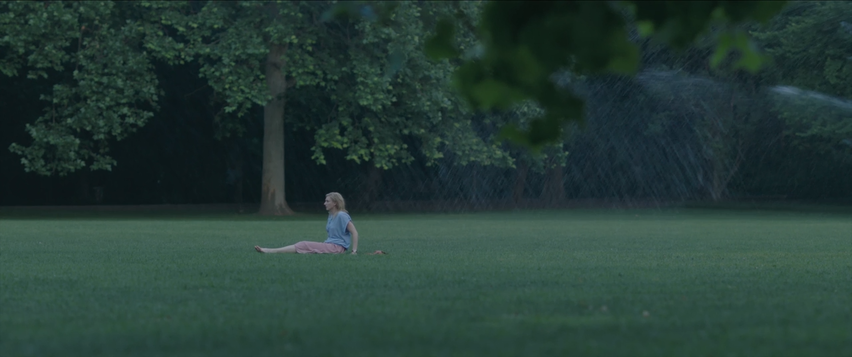 Ildikó Enyedi's On Body and Soul is fearless, unadulterated filmmaking at its finest, a peculiar, slightly off-beat romance between two souls adrift that manages to be transcendental in its deconstruction related to the catharsis of love. The story between the reclusive aging Endre, the small manager of a meat packaging plant, and the shy newcomer Maria, the plant's cryptic new quality-control inspector, On Body and Soul showcases a timid, unorthodox romance demonstrating the fragility of emotional intimacy, and the fear associated with the potential pain which may follow placing oneself in such a vulnerable state. On Body and Soul lives in a world perhaps best described one of magical realism, where love and romantic fate feel predestined for these characters at times, yet throughout the narrative their slowly evolving relationship still feels frail, a house of cards which could crumble under the weight of both internal and exterior pressures, whether it be from personal insecurities or environmental forces. One of the best examples of how On Body and Soul creates is singular tone is through it use of its outre setting for a romance, a slaughterhouse. Enyedi uses this setting as an artifice to accentuate his themes, as this environment provides a beautiful juxtaposition, one contrasting Endre and Maria's tender, slow-evolving relationship with that of harsh, visceral brutality of the world in which they operate in. This juxtaposition in the film evokes a powerful symbolic representation about courtship itself - the tenderness, fragility, and innocence of this budding romance between Endre and Maria contrasted against the harsh, sudden, nature of the exterior world, one which is removed from the idyllic nature of their shared spiritual connection. At its core, On Body and Soul works so well due in large part to its wholly transfixing main characterizations, with both Endre and Mariea being individuals whom the audience becomes enamored with, taken aback by their insecurities and quirks, hopeful for their potential happiness. Through these characterizations, On Body and Soul delivers an astute, raw, and honest examination of the existential nature of love itself, showcasing how the potential jubilation of finding companionship is muted for these two characters by their own fears and insecurities. Love and companionship is a foreign/alien concept for Maria- she pines for it, she recognizes her sense of longing and her feelings she has for Endre yet she is fearful of its raw power. Endre comes from a slightly different place yet is driven by the same fear. Being older, he is fearful of the uncertainty of something new, with his own cynicism about his potential for happiness getting in the way, a dark, negative force which almost leads to a grave tragedy for both individuals. One of the most peculiar yet emotionally affecting romances I've seen in ages, Ildikó Enyedi's On Body and Soul is a transcendental experience due to its ability to use an unconventional artifice to deliver a spiritual and intellectual analysis of love and companionship on an existential level.
A quintessential Academy Awards puff-piece in which an iconic historical figure is brought to life by a celebrated thespian, Joe Wright's Darkest Hour is a tedious, by-the-numbers slog that simply can't be saved by Gary Oldman's head-turning performance alone. The treatment itself, centered around Churchill's unwillingness to accept the potential for a peace accord with Hitler, is a juicy enough slice from the historical figures' life, yet the film finds itself bogged down by a painstakingly didactic screenplay, one soaked so heavily in inorganic humanism and forced sentimentality that eye roll induction by the audience may be a foregone conclusion. The film shows little interest in deconstructing the headspace a man whose been granted extreme authority in such a tumultuous time in European and World History, intent instead on simply going through the motions themselves without providing any true psychological context, a tremendous mistake and missed opportunity. Wright's direction is stylish yet overwrought, featuring an aesthetic which juxtaposes darkness and light in vivid detail, with sunlight itself feeling accentuated throughout the film's running time, a force that pierces through the dark, dusty old exteriors, a symbolic representation of hope much like Churchill himself, a man whom would not succumb to the Nazi regime and the darkness it stood for. While perhaps a little over-the-top, Joe Wright's visual design is expressionistic and lived-in, and along with Gary Oldman's performance Darkest Hour simply should have been more connective and engaging than it is, which is perhaps a perfunctory testament to a plodding, tepid screenplay, one which never attempts to dig into the psyche of this character, a man whom came face-to-face with evil with the fate of his countryman, and perhaps the world itself, hanging in the balance.
Devoid of any form of didactic exposition, Michael Haneke's Happy End is a challenging study of familial detachment and disintegration, detailing the day-to-day lives of an upper-bourgeois family living in in Calais, a city very much at the heart of the European refugee crisis. Rooted in bare formalism, Happy End is a family drama which shows little interest in providing hearty characterizations, forcing the viewer to learn about these characters in the moment, as the film spins its cynical web of the world- one in which self-interest and emotional detachment has left many in the family despondent. Happy End sees the celebrated German Filmmaker play in same waters we've grown accustomed to, yet Happy End lacks the same bite, being slightly mischievous but never as wholly subversive. All of Haneke's thematic assertions are difficult to pinpoint, yet it's very clear that Happy End presents a rather cynical perspective of the current state of society, one void of empathy due to increasing human detachment. How the characters communicate throughout Happy End is a major hint at this theme, as they use various electronic devices to primarily communicate throughout. Connection through these small, impersonal devices fulfill the same function as traditional in-person forms of communication, but at what cost, as they lack the personal attachment of physical connection/interaction which unquestionably warrants much more detail and nuance into understanding day-to-day communication with others. The family profiled, their detachment, coldness, and general lack of empathy is symbolic to Europe and the world as a whole, one which is growing further-and-further detached from this personal and physical connections which human-beings need and desire, with the families' own internal turmoil of neglect, self-centeredness, and detachment just being a surrogate for the larger problems our society faces as whole.
|
AuthorLove of all things cinema brought me here. Archives
June 2023
|
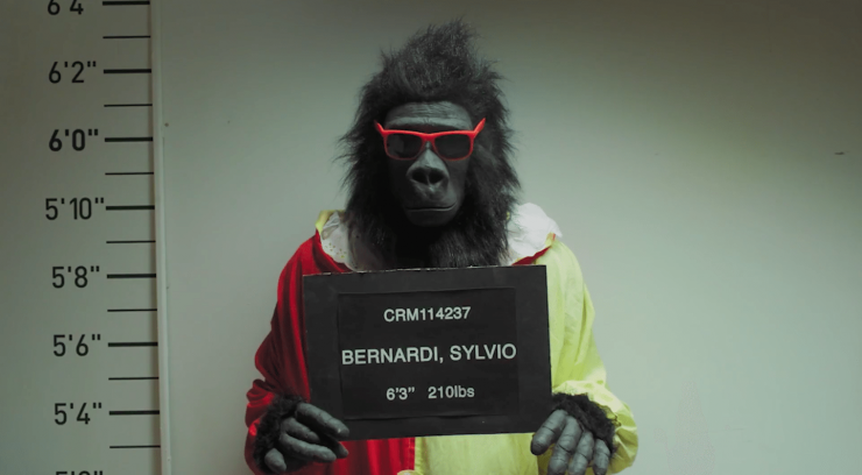
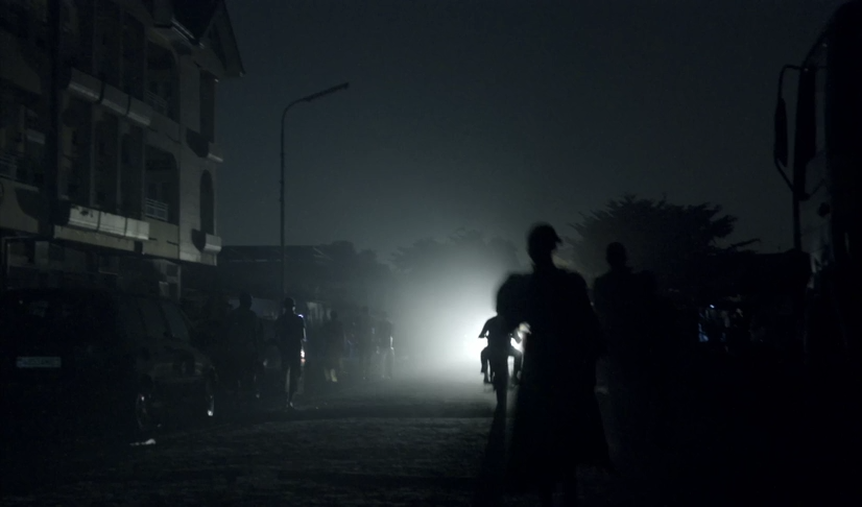
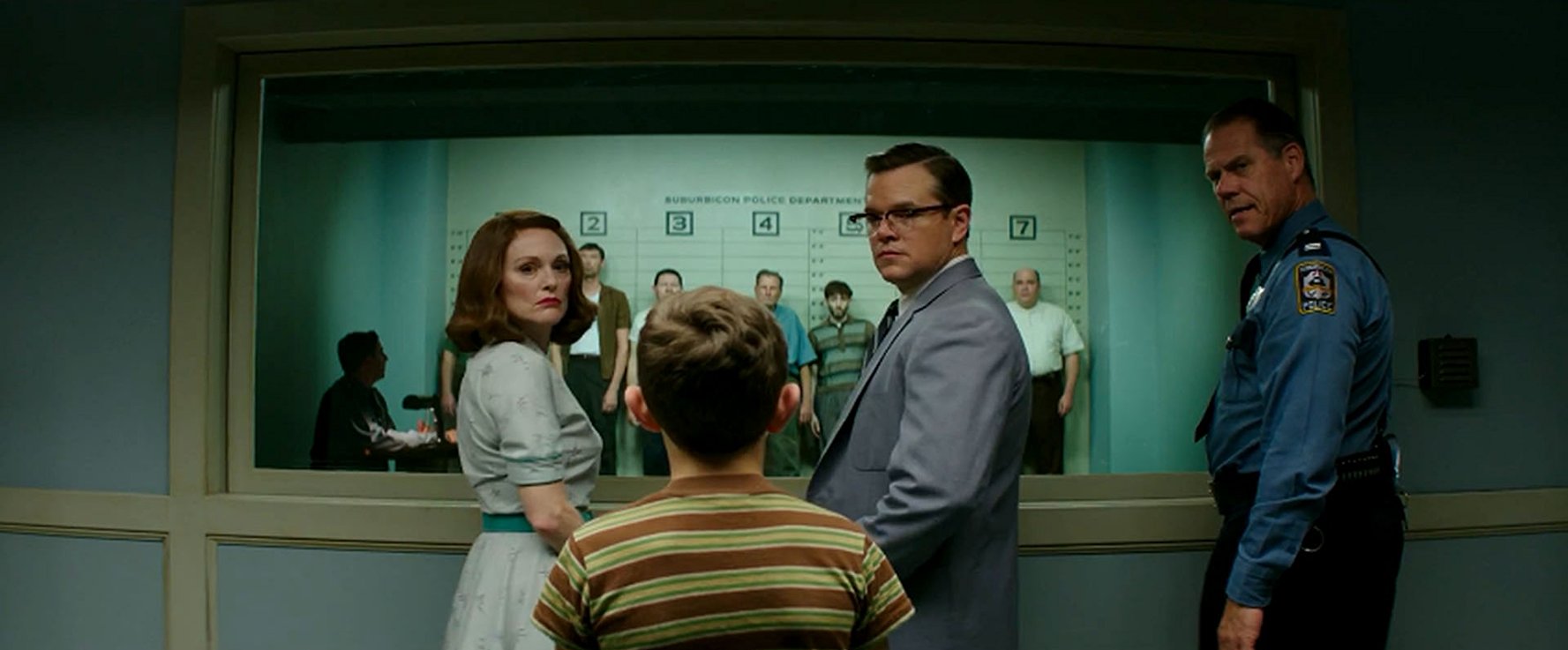

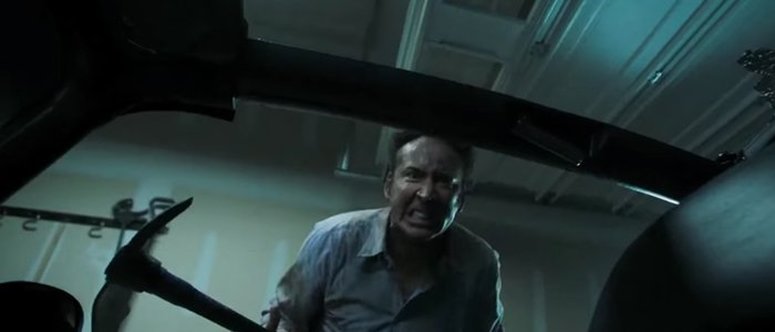
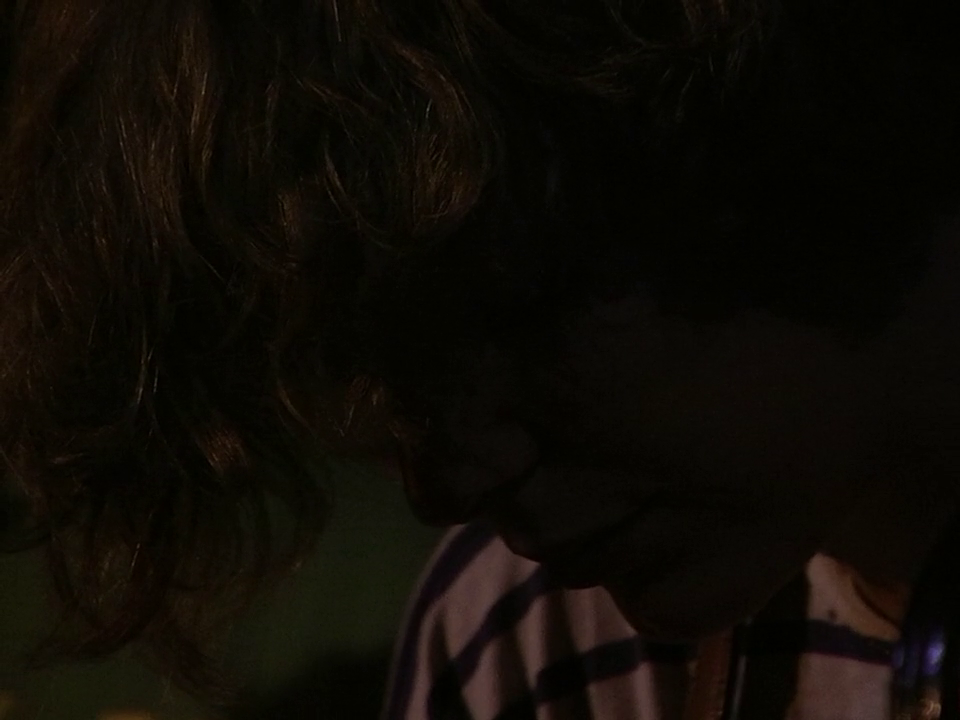
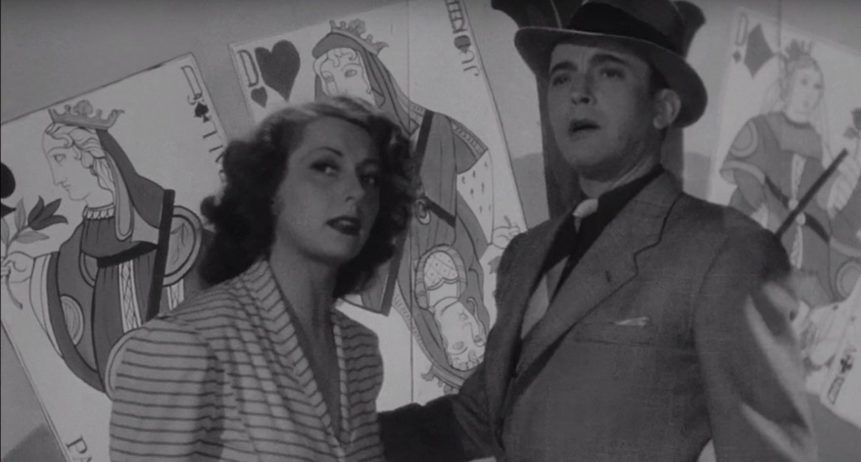
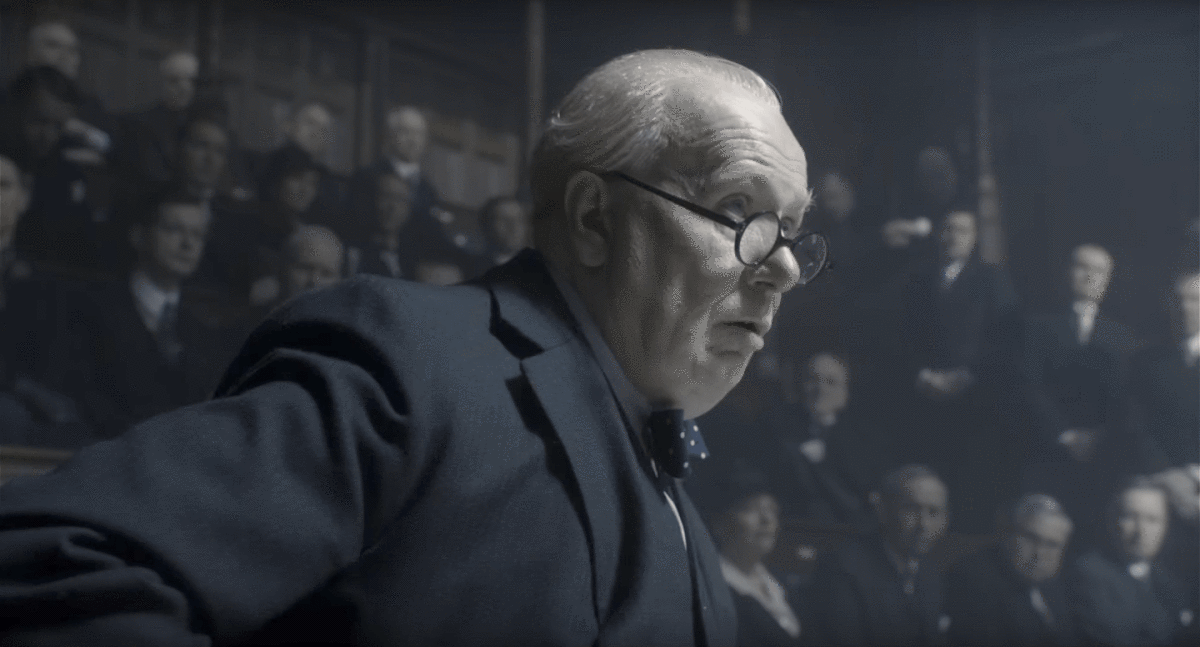
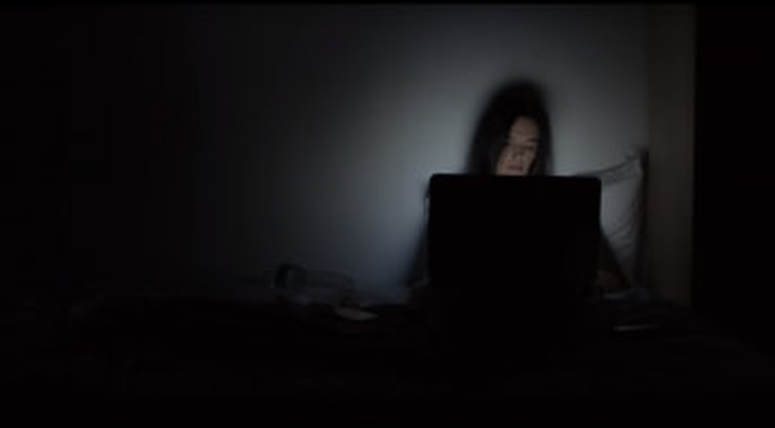
 RSS Feed
RSS Feed
